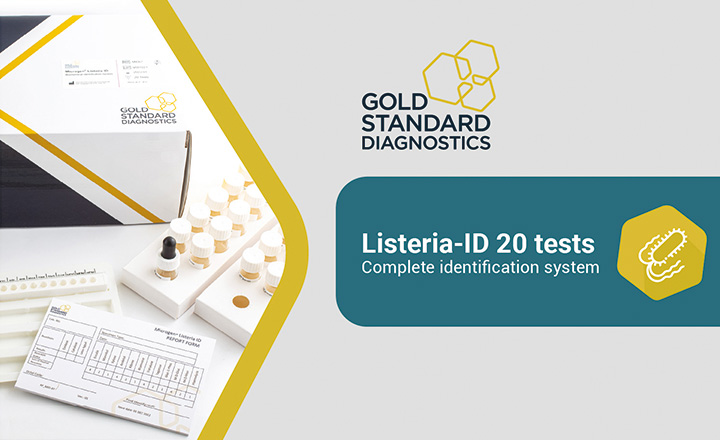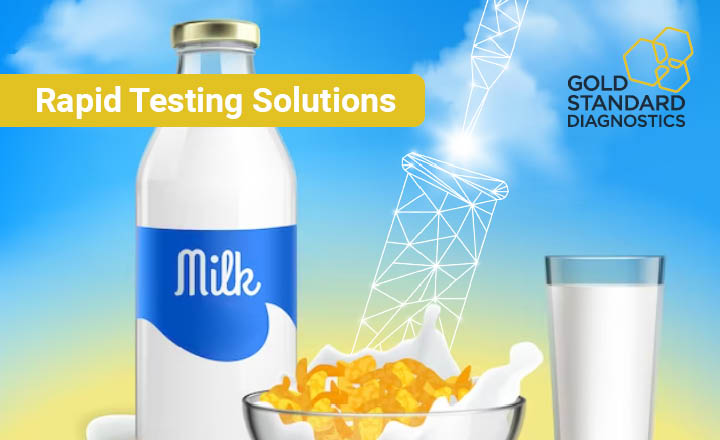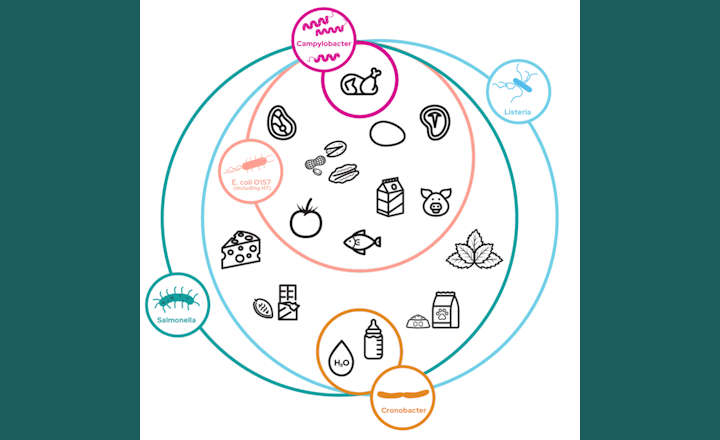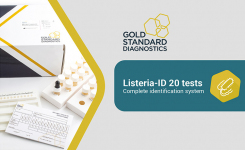Rheonix Inc has launched its Listeria PatternAlert™ assay, a breakthrough method for rapidly identifying molecular patterns from Listeria strains. The method will assist food producers in identifying harborage sites for persistent Listeria and in tracing back sources of contamination. The Listeria PatternAlert assay provides results in just six hours after a presumptive positive screen, enabling users to take rapid action to reduce the risk of contamination and recall. Rheonix will showcase the technology at the International Association of Food Protection (IAFP) 2018 Annual Conference, July 8-11 in Salt Lake City.
Current strain typing methods take up to two weeks to complete and require an isolate in pure culture. The Listeria PatternAlert assay, which is performed using the fully automated Encompass Optimum™ workstation, enables users to detect molecular patterns in just six hours directly from a positive enriched sample, without the need for an isolate. Each result can be matched against a user’s specific PatternAlert database to identify their pattern matches across locations and time.
The Listeria PatternAlert assay detects the presence or absence of independently occurring genetic targets that can sort Listeria into thousands of potential patterns. Each pattern generated by the assay encompasses a group of strains and may include multiple species of Listeria.
“Our approach is to provide information directly from enriched samples that can help users identify recurring strains or populations,” said Brooke Schwartz, Rheonix vice president for strategy and marketing. “The discriminatory power of the PatternAlert assay was carefully calibrated to enable users to make informed decisions based on molecular patterns, without providing a strain level characterization equivalent to whole genome sequencing or pulsed field gel electrophoresis.”
Persistent strains that find a harborage site in a food facility can significantly increase the risk of broader contamination, and are a target of increasing regulatory scrutiny. Food producers routinely screen for the presence of Listeria and take corrective action when positive samples are found. Until now, however, obtaining additional information on Listeria strains or populations in a sample was time-consuming and required an isolate in pure culture. With the Listeria PatternAlert assay, once a presumptive positive result has been obtained using an existing screening method, a sample from the initial enrichment can be processed directly on the Encompass Optimum workstation, without the need for an isolate. This method provides users with a rapid, cost-effective tool to aid in identifying, tracking and addressing recurring Listeria.
Rheonix will showcase the Listeria PatternAlert assay for use on the Encompass Optimum workstation at IAFP at booth 926. Morgan Wallace, Ph.D., scientific director for applied markets at Rheonix, will also give a technical presentation titled “Development of a Molecular Listeria Pattern Recognition Assay, a Novel Rapid Method for Identifying Resident Listeria” Wednesday, July 11, at 2 p.m. in Room 151 D-G, Salt Palace Convention Center.
For more information on Rheonix, visit www.rheonix.com.























